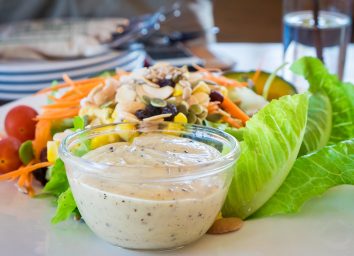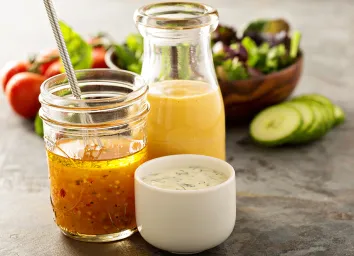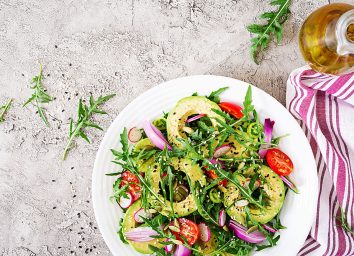What Happens to Your Body When You Eat Salad
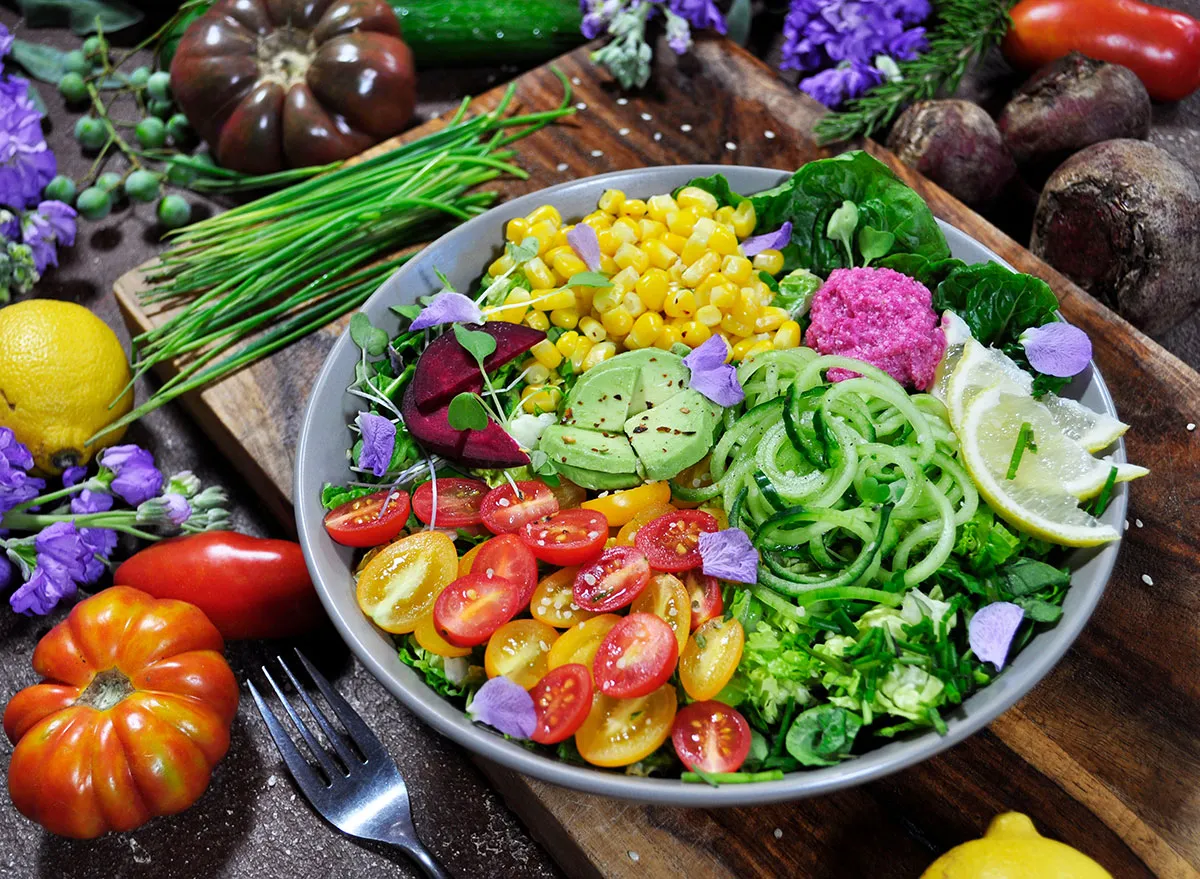
Salads may be the most loved—and hated—form of getting your veggies during lunch or dinner. Some people find them delicious and satisfying, while others force leafy greens into their diet just to ensure they're keeping up with their healthy eating goals.
But are salads really as healthy as you may think they are? And what would happen if you consumed them on a daily basis?
We wanted to set the record straight on this popular health food and what happens when you eat salad, so we spoke with Lauren Hoover, RD, and Toby Amidor, MS, RD, CDN, FAND, award-winning nutrition expert, and Wall Street Journal best-selling cookbook author. You might be surprised to uncover just exactly how those daily salads are impacting your diet! And while you're trying to make better choices, check out these 15 Underrated Weight Loss Tips That Actually Work.
You'll get a bigger serving of fiber.
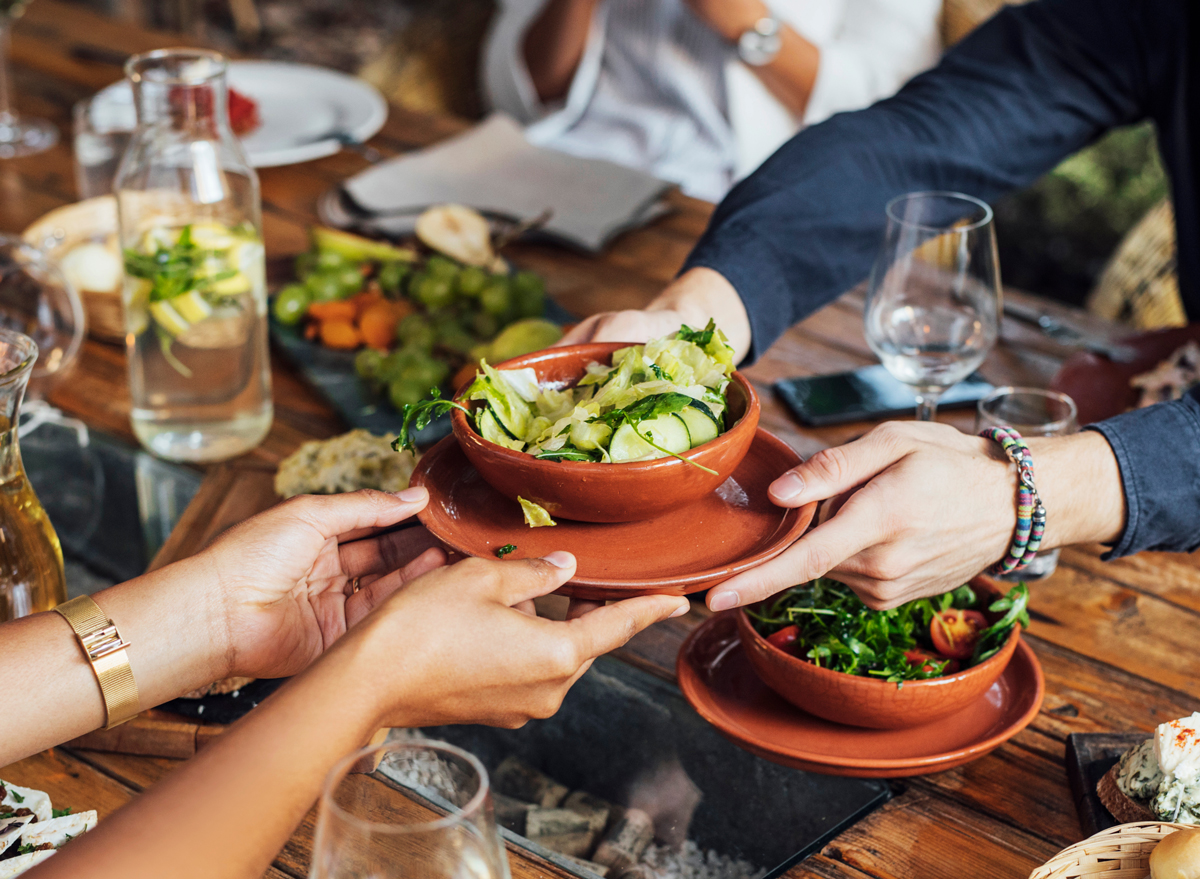
Eating raw vegetables and fruits is a great way of incorporating more fiber into our diet, and this includes leafy greens. When you include fiber in your daily diet, you can help prevent obesity and type 2 Diabetes, as well as aid in healthy digestion.
"The fiber found in vegetables can also aid in blood cholesterol management," says Hoover. "Therefore, if we are strategic about what we put in our salads, we can get several health benefits from eating them frequently."
To increase your fiber intake when you reach for the salad, try adding some tomatoes, carrots, or cucumbers.
You'll consume helpful nutrients.
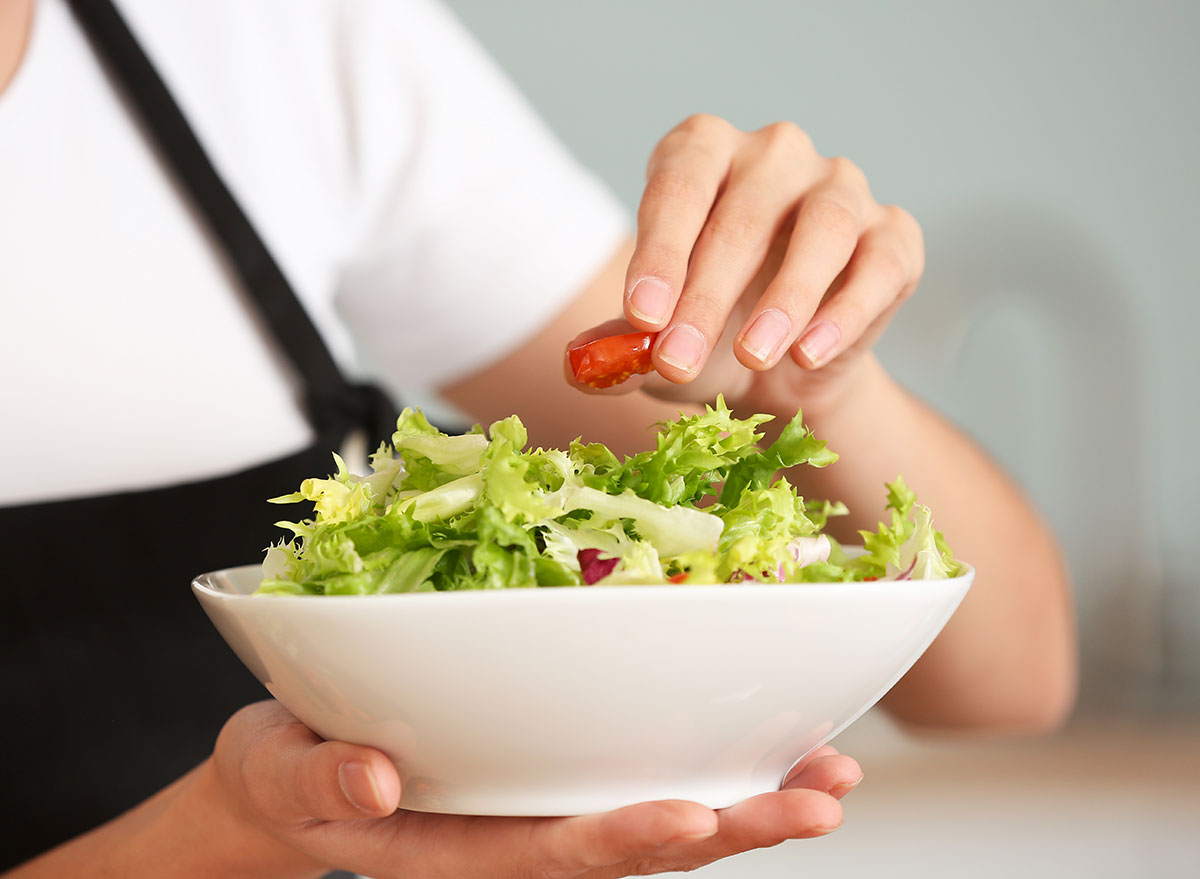
Vegetables are packed full of nutrients that your body needs, but you may need to eat more of them.
"Only 1 in 10 Americans get the recommended daily amount of vegetables and fruit," says Amidor. "This means 90% of Americans are not eating enough vegetables and fruit daily."
If you aren't getting enough, you're missing out on a lot of important nutrients. According to Amidor, "vegetables provide many important nutrients including antioxidant vitamins A and C, potassium, and an array of phytonutrients which are natural plant compounds that can help prevent and fight disease."
The good news is that salad could be the answer. Hoover believes that salads are a great way of getting our recommended daily servings of vegetables.
"I generally recommend making each meal half the plate vegetables. So, including salads with your meals or having as your entrée, can be a helpful strategy to boost vegetable intake and achieve this proportion."
According to the Journal of the Academy of Nutrition and Dietetics, people who reported eating salads specifically had higher amounts of vitamins A, B-6, C, E, K, folate, choline, magnesium, and potassium.
You may consume more calories and fat.
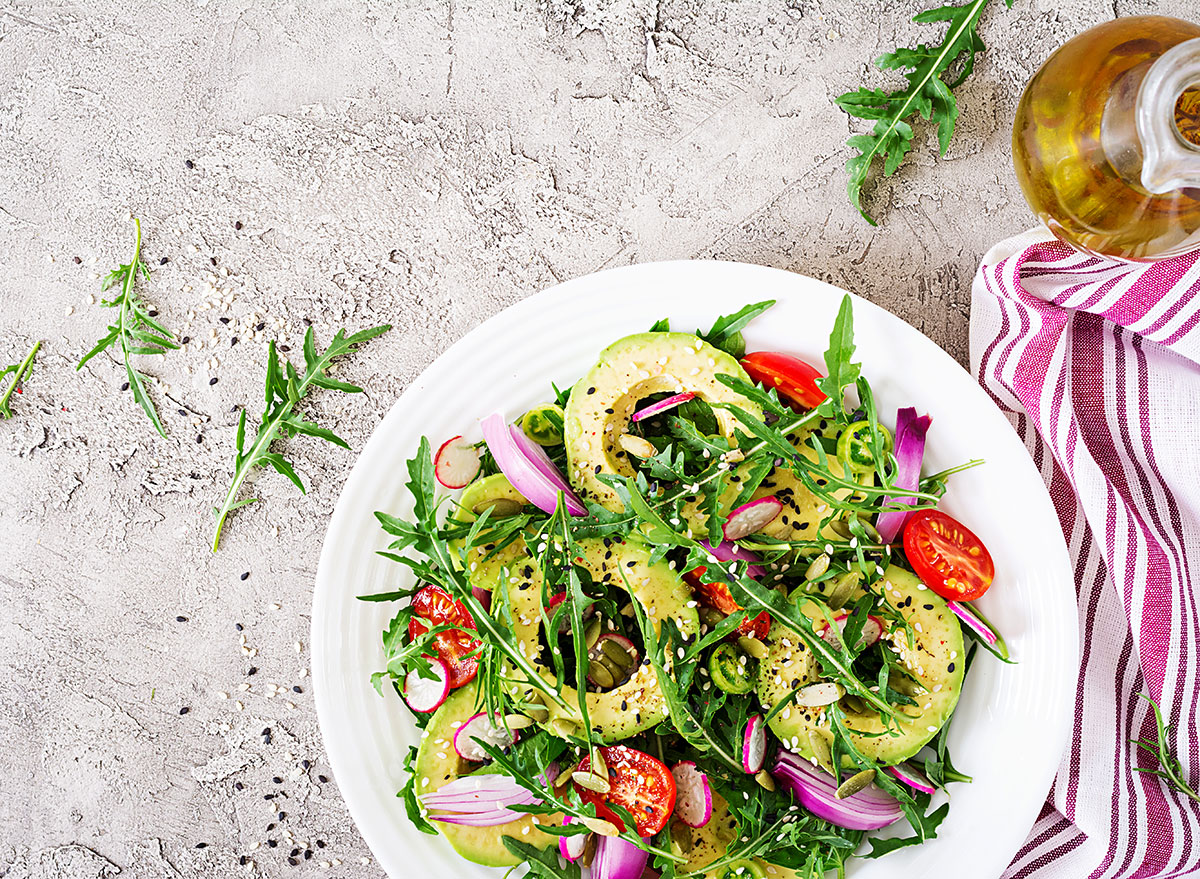
Although salads are packed full of fibers and nutrients that our body needs, it's important to note that regularly consuming salads may sometimes bring some unwanted side effects as well. In the same study from the Journal of the Academy of Nutrition and Dietetics, it was found that regular salad consumers also showed higher numbers of sodium, fat, sugars, and refined grains.
According to Amidor, this is because most people often pack on ingredients that are higher in fat and sugar to make the salads more delicious.
"Salads that are made with numerous high-calorie ingredients like cheese, lots of nuts and seeds, tortilla chips, avocado, and creamy dressings can send the calories of the salad soaring to 800 or more," says Amidor. "Eating meals that are very high in calories often can potentially lead to weight gain, obesity, and type 2 diabetes."
Hoover also reminds us that "while salads can be loaded with nutrients, not all salads are created equally…some dressings have hidden ingredients that add extra calories and sugar to the salad."
Both Hoover and Amidor believe that you can watch your calorie intake by carefully selecting your salad toppings.
"Top your salad with protein such as salmon, hard-cooked egg, beans, tofu, shrimp, chicken breast, or lean beef—and avoid fried foods," says Amidor.
"It is important to build salads with green leafy vegetables, include colorful vegetables, top with lean proteins, healthy fats, and use a lower-in-sugar dressing, in order to reap their benefits," suggests Hoover.
If you're looking for some healthy recipe inspiration, here are easy, healthy, 350-calorie recipe ideas you can make at home.
You may feel hungry and a bit unsatisfied.
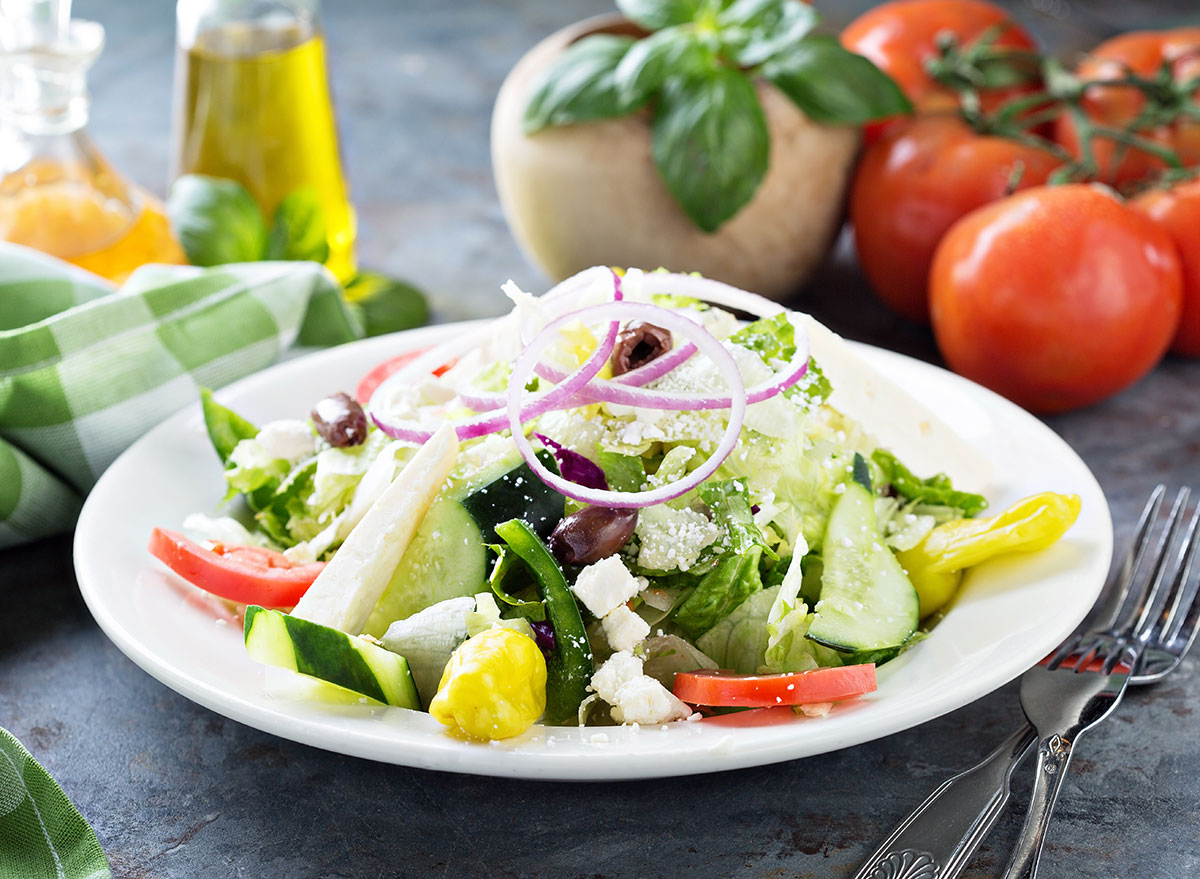
Although salads can become calorie-heavy, it's also important to make sure you are getting enough calories and nutrients in your meal. If you are consuming salads with too few nutrients, calories, or protein, you may be left feeling hungry and satiated quickly after.
In a study found in the Journal of Nutrition on men and protein intake, it was concluded that inadequate amounts of protein left men of all ages feeling hungrier and less satisfied with their meals.
"If entrée salads are incomplete, meaning they don't contain all the macronutrients—lean proteins, healthy fats, and complex carbohydrates—then they might not provide a satiating meal and in turn leave a person feeling hungry, says Hoover."
Although you may be turning to salads in order to eat healthier and consume fewer calories, it may leave you overall hungrier and unsatisfied if you don't pack those salads full of helpful protein and nutrients. Because of this, it's important to listen to your body while you eat and incorporate protein where you can.
You may feel more bloated.
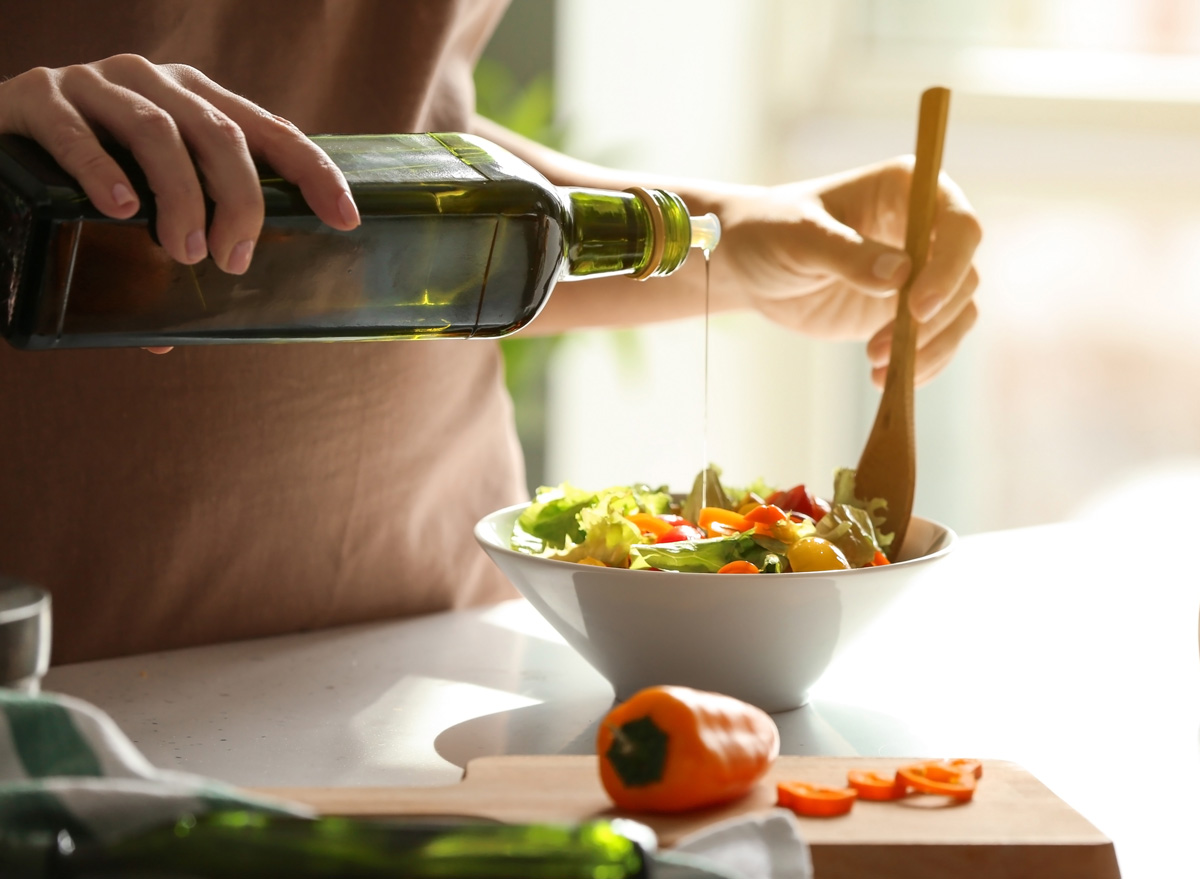
Salads and raw vegetables can be great for regulating digestion and obtaining helpful nutrients. On the flip side though, too many raw vegetables may actually hurt your gut.
According to Hoover, "eating salad every day can cause some individuals to feel bloated because too many raw veggies and roughage can be hard to digest." In a recent gastroenterology study, it was concluded that lettuce can in fact cause bloating, either related to increased gas through fermentation in the gut, or contractions of the abdominal wall.
If you're feeling some discomfort and bloating, it may be helpful to check in and track your raw vegetable consumption. Our bodies are unique and can process salads and raw vegetables differently, which is why Hoover stresses that "it is very important to listen to your own body."
A lot goes on when you eat a salad, but as long as you're keeping it protein-packed, staying away from the wrong toppings, and are keeping track of exactly how your body is reacting, go ahead and keep eating those daily salads.
